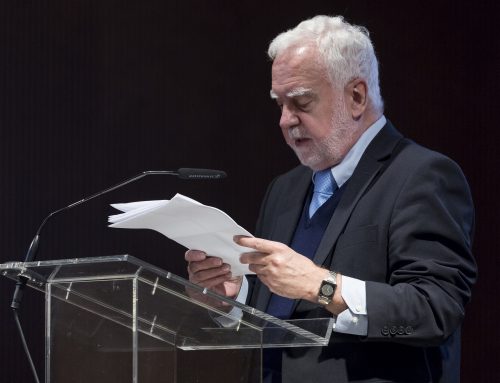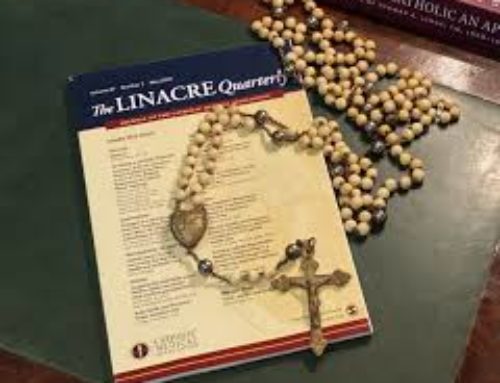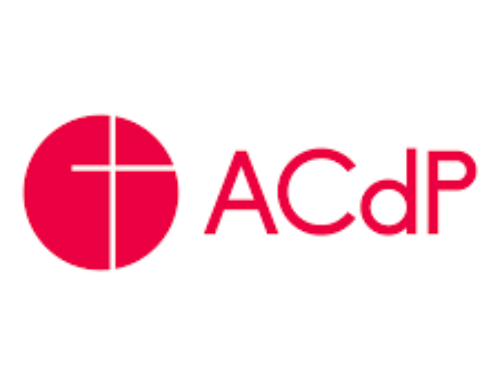A Crash Course in Catholic Medical Ethics
Fr. Germain Kopaczynski, OFM Conv., Ph.D., S.T.D.
1. The Prime Directive: Every Discipline Has One:
a. “We shall not interfere with the development of any culture.” –Star Trek
b. “Do good and avoid evil.” –Catholic ethics
c. “Primum non nocere.” –Medical ethics
2. Good vs. Evil.
3. Our faith teaches us:
a. God is creator of all.
b. We are made in the image of God.
c. God is the Lord of life and death (Deut. 32:39)—not us.
d. You shall not kill.
4. The Christian view of the human being:
a. God created us with intelligence.
b. God created us free.
c. Human beings are creatures of God. We are not absolute masters but
responsible stewards. The great temptation of our age is to think that we
can be absolute masters. We think: “If we can do it, then it is morally right
to do it.” In other words, “Technology trumps morality.”
d. This is the temptation of the Technological Imperative.
5. Faith and Reason:
a. “Join faith and reason if you can.” –Boethius
b. “A truth of faith and a truth of reason can never contradict.” –Based on St.
Thomas Aquinas.
6. Moral dilemmas: “While the Church cannot furnish a ready answer to every moral
dilemma, there are many questions about which she provides normative guidance
and direction.” – Ethical and Religious Directives for Catholic Health Care
Services, USCC, June 15, 2001. If we understand the underlying principles, we
have a guide to resolving dilemmas.
7. Moral Principles of Secular Medical Ethics:1
a. Respect for autonomy
b. Nonmaleficence (doing no harm)
c. Beneficence (doing good)
d. Justice
8. Moral Principles of Catholic Medical Ethics:2
a. Sanctity of life (right to life)
b. Principle of double effect
c. Human dignity
d. Informed consent
e. Principle of integrity and totality
1
Principles of Biomedical Ethics, 4th Edition. Beauchamp, T.L. and Childress, J.F.,
Oxford University Press, USA, 1994.
2
Health Care Ethics: A Theological Analysis. K.D. O’Rourke and B.M. Ashley,
Georgetown University Press, 1997.f. Material cooperation
g. Ordinary/extraordinary
h. Common good and subsidiarity
9. Sanctity of Life: “Sanctity of life creates a presumption in favor of sustaining life
and so places the burden of proof on those who would take life or fail to forestall
death.”3
We must have a ‘bias for bios’, a bias, a presumption for life. This
principle is the basis of numerous directives of the Ethical and Religious
Directives (ERD) including #3 and 36.
10. Principle of Double Effect: It is allowable to perform an action that will produce a
good effect and a bad effect provided:
a. The good effect and not the evil effect is directly intended.
b. The action itself is good, or at least indifferent.
c. The good effect is not produced by means of the evil effect.
d. There is a proportionate reason for permitting the foreseen evil effect to
occur.4
For example, it is allowable to perform a hysterectomy on a pregnant woman
with life-threatening uterine cancer. The doctor’s intent is to save the
woman’s life, not to abort the fetus. This principle can rightly be regarded as
“The Troubleshooter” because it helps resolve many difficult issues. This
principle is the basis of ERD directives #47 (indirect abortion), #53 (indirect
sterilization), and #61 (pain relief).
11. Human Dignity
12. Informed Consent: Medical procedures require informed consent because human
beings are made in God’s image, that is, with intelligence, hence, informed, and
with freedom, hence, consent. Regarding informed consent, The patient is to
know:
a. The nature of the procedure;
b. the risks;
c. the probable benefits;
d. the possible alternatives.
This principle is the basis of ERD directives #26, 27, 28, 31, 32, 50, 51, 59,
and 65.
13.Conscience: We often hear: “One must follow one’s conscience in making ethical
decisions.” We should be more precise: “One has a duty to follow a well-formed
conscience in making ethical decisions.”
5
14. The Culture of Life vs. the Culture of Death:
a. “I have set before you life and death, the blessing and the curse. Choose
life, then, that you and your descendents may live.” –Deut 30:19.
b. “The way of Christ ‘leads to life’; a contrary way ‘leads to destruction.’
20
The Gospel parable of the two ways remains ever present in the catechesis
3
Euthanasia. R.M. Gula, Paulist Press, 1995.
4
Based upon Medical Ethics. E.F. Healey, Loyola Press, 1956, p. 94.
5
“A well-formed conscience is upright and truthful. It formulates its judgments according
to reason, in conformity with the true good willed by the wisdom of the Creator. Everyone
must avail himself of the means to form his conscience.” Catechism of the Catholic
Church, #1798.of the Church; it shows the importance of moral decisions for our
salvation: ‘There are two ways, the one of life, the other of death; but
between the two, there is a great difference.’” –Catechism of the Catholic
Church #1696.
c. The Dependent Person: In a Culture of Life the dependent person (the
unborn, the disabled, the elderly, the poor; in a word, the youngest, the
oldest, the weakest, and the sickest) are included. In a Culture of Death the
dependent person is excluded, an exclusion which usually begins with
linguistic subterfuge. For example, in its attempt to ‘package’ abortion, a
Culture of Death will refer to the occupant in the womb as a ‘product of
conception’ or ‘a blob of protoplasm,’ never an ‘unborn child.’ At the end
of life, it will speak of Terri Schiavo as a ‘vegetable,’ not a profoundly
disabled human being.
15. Who’s in Control Here?:
a. “Man the measure of all things.” –Protagoras of Abdera (c. 480-410 B.C.)
i. Gloria Steinem once wrote: “By the year 2000 we will, I hope,
raise our children to believe in human potential, not God.”
ii. Robert Edwards, the inventor of in-vitro fertilization was
interviewed by The Times of London in 2003 about his discovery.
He said, “I wanted to find out exactly who was in charge, whether
it was God Himself or whether it was scientists in the laboratory.”
And what did he conclude? “It was us.”
b. God is the measure of all things. “I, the LORD, am your God, who
brought you out of the land of Egypt, that place of slavery. You shall not
have other gods besides me.” –Exodus 20:2-3
[This material was originally presented in lecture format April 29, 2008 in Worcester,
MA as part of the 4th Annual Healthcare Professionals for Divine Mercy Conference:
Medicine, Bioethics, and Spirituality. It is reproduced here kindly with permission of Fr.
Kopaczynski.]
http://www.worcestercma.org/index_files/block_10/CrashCourse.pdf







